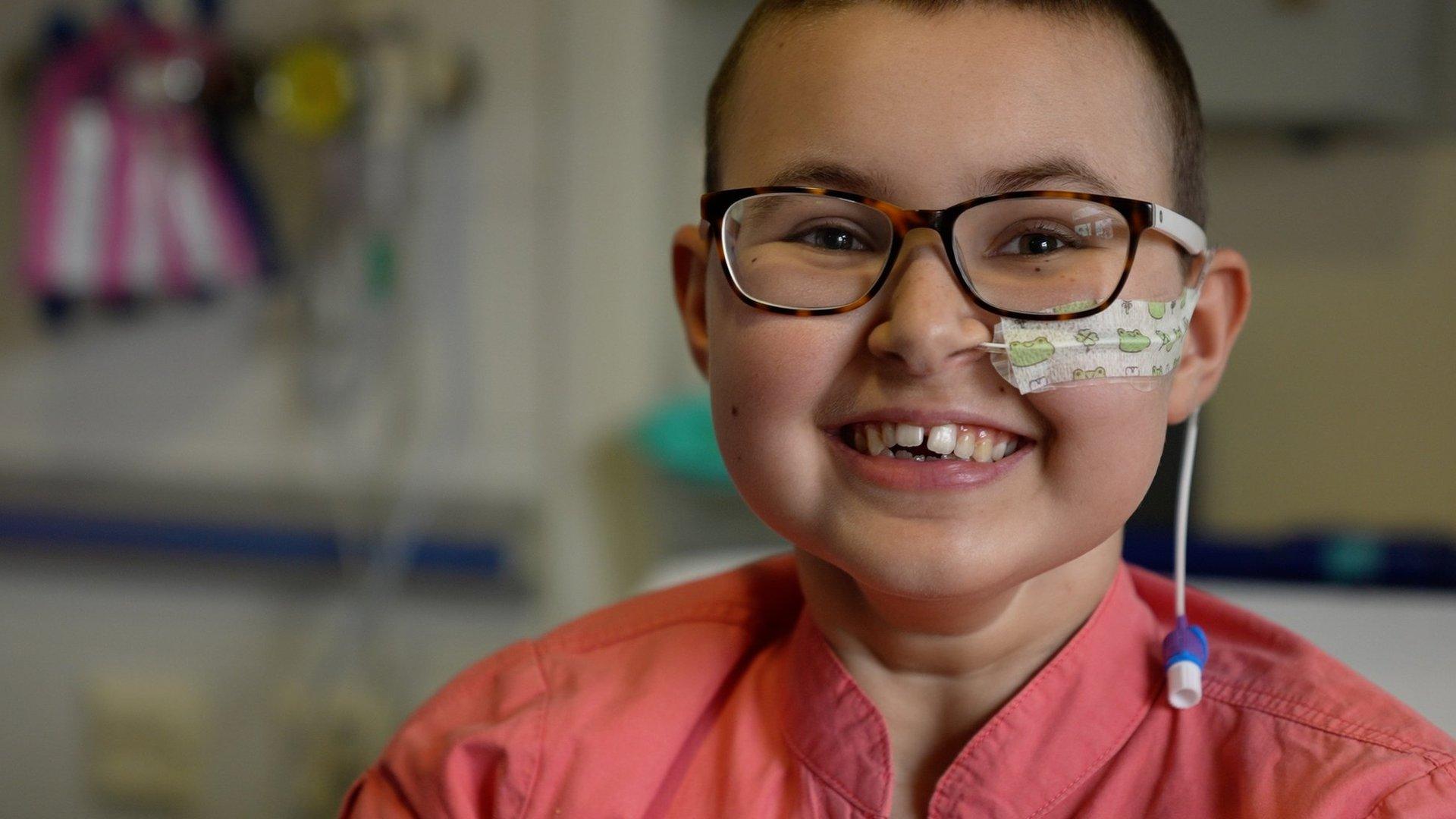University of Leeds experts hope for 'new standard' in leukaemia care
- Published

The trial was led by a team from the university's school of medicine
Personalised treatment for the most common form of adult leukaemia is helping patients survive for longer and stay in remission, a study has found.
A trial led by the University of Leeds found therapy could be individualised for each patient by using regular blood tests to monitor their response.
Cancer Research UK said treatment could be tailored without the need for frequent "invasive" bone marrow tests.
Researchers hope this approach will be adopted as a new standard of care.
As part of the trial, patients were given a combination of cancer growth blocking drugs over varied durations, depending on how rapidly their disease responded.
The trial found this significantly improved outcomes compared with the standard treatment for chronic lymphocytic leukaemia (CLL), with more than 19 in 20 patients in remission three years after starting treatment.
The effect was also stronger among patients with poorer outcomes to standard treatments, such as those with some genetic mutations.
'Very effective'
The study took place at more than 100 hospitals across the UK, and involved more than 1,500 patients.
Lead author Prof Peter Hillmen, from the university's school of medicine, said the results had been "exceptional".
"Our findings show that, for this group of patients, the treatment is very effective at tackling their disease and is well tolerated by them," he said.
"This means that patients on our trial had better outcomes while also enjoying a better quality of life during their treatment," he added.
Chronic lymphocytic leukaemia is a type of cancer that affects the blood and bone marrow. It cannot usually be cured but can be managed with treatment.
Dr Iain Foulkes, executive director of research and innovation at Cancer Research UK, said the study showed the "importance and effectiveness" of tailoring cancer treatment to individual patients.
"Not only this, but the trial has found a way to do so without requiring frequent bone marrow tests which are more invasive and can be painful," he said.
"The collaborative effort that went into this trial - involving researchers, healthcare professionals, funders and dedicated patients and their families - points to a new standard of care which could see real progress made against leukaemia."

Follow BBC Yorkshire on Facebook, external, X (formerly Twitter), external and Instagram, external. Send your story ideas to yorkslincs.news@bbc.co.uk, external.
Related topics
- Published29 August 2023

- Published20 June 2023

- Published7 January 2022

- Published11 December 2022
